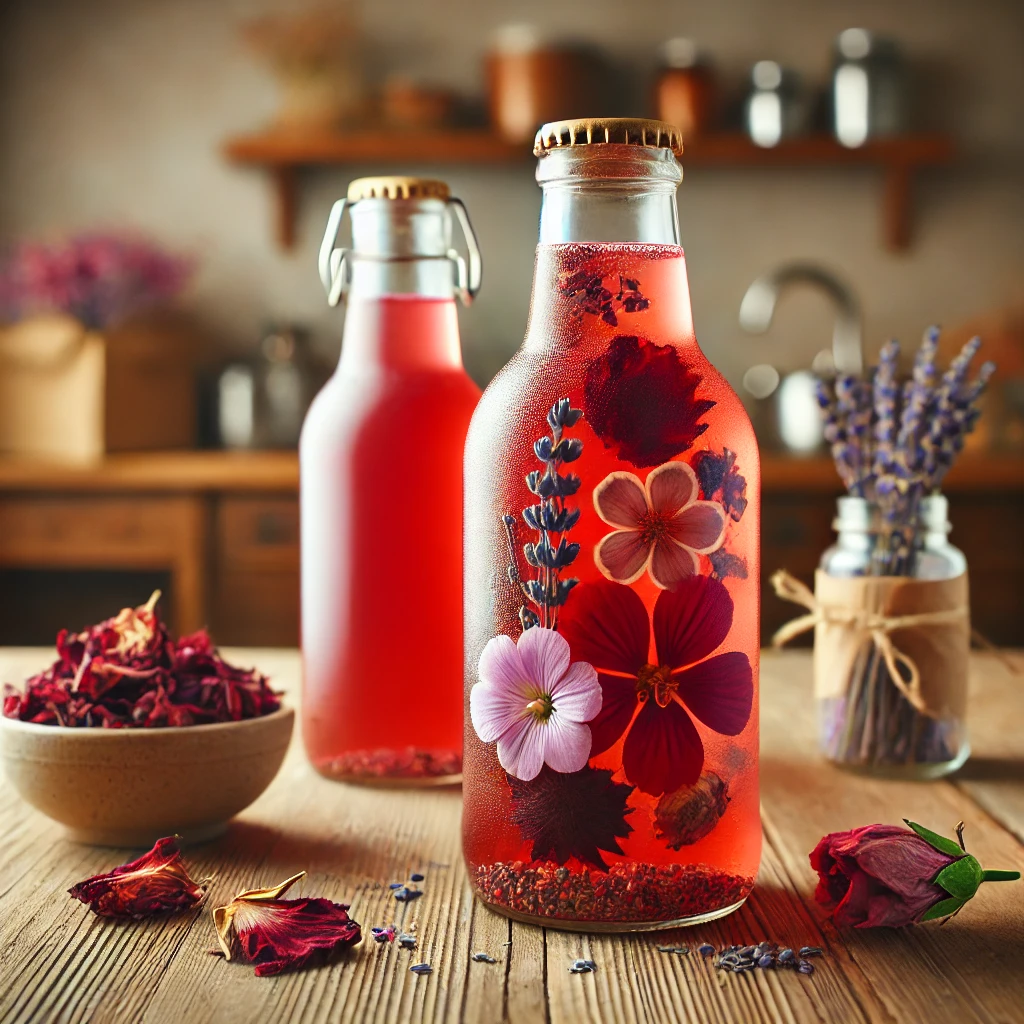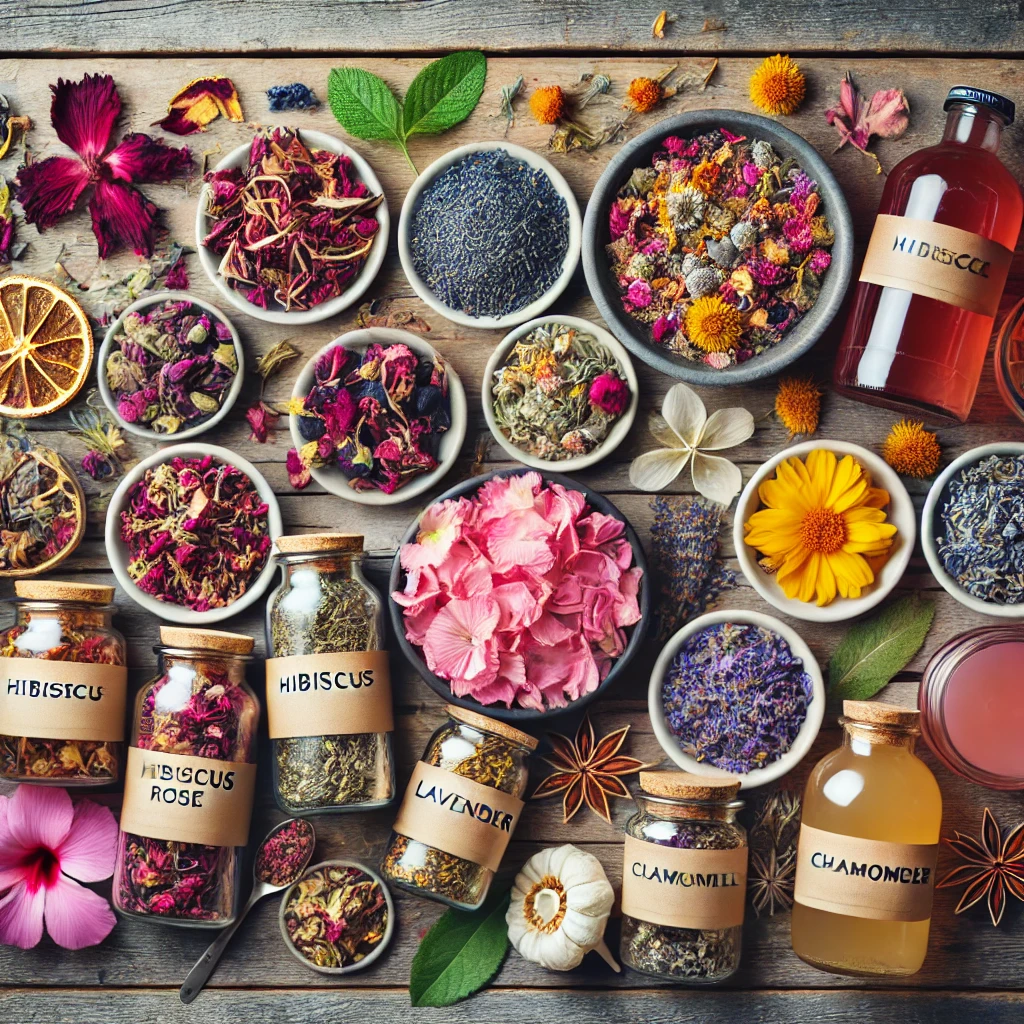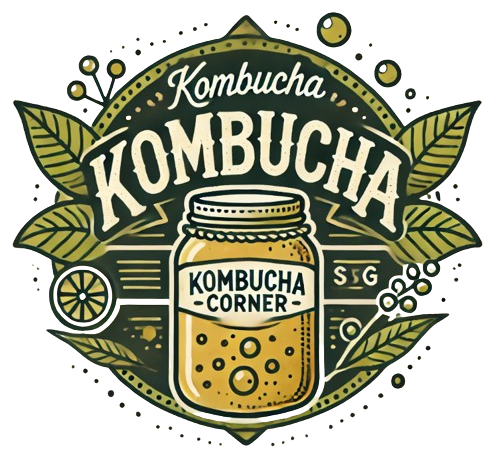How to Use Edible Flowers for Kombucha: A Complete Guide to Floral Kombucha
Kombucha enthusiasts are always looking for creative ways to infuse unique flavors into their brews. One trend taking the kombucha world by…
Kombucha enthusiasts are always looking for creative ways to infuse unique flavors into their brews. One trend taking the kombucha world by storm is flavoring with edible flower petals. Not only do they add a touch of elegance and vibrant colors, but these blooms also bring subtle, aromatic flavors and potential health benefits. If you’re looking to elevate your kombucha game, edible flowers are the perfect ingredient to try.

Why Use Edible Flowers in Kombucha?
Edible flowers are more than just decorative—they’re a natural way to enhance your kombucha with:
- Delicate Flavors: Subtle floral notes provide a nuanced, aromatic profile.
- Visual Appeal: The vibrant colors make your kombucha Instagram-worthy and irresistible.
- Nutritional Benefits: Many flowers are rich in antioxidants, vitamins, and calming properties.
- Versatility: Flowers complement fruity, herbal, and even spicy flavors, making them a versatile ingredient for experimentation.
Top Edible Flowers for Kombucha Flavoring

Here’s a list of popular edible flowers, their flavor profiles, and potential health benefits:
| Flower | Flavor Profile | Health Benefits |
|---|---|---|
| Hibiscus | Tart, cranberry-like | Rich in antioxidants; supports heart health |
| Rose Petals | Soft, floral, slightly sweet | Anti-inflammatory; enhances skin health |
| Lavender | Calming, mildly sweet | Reduces stress and improves sleep quality |
| Chamomile | Gentle, earthy, slightly bitter | Soothes digestion and promotes relaxation |
| Butterfly Pea | Neutral, slightly earthy | High in antioxidants; changes color with pH |
| Elderflower | Sweet, musky | Boosts immunity and fights inflammation |
Flowers to Avoid
Not all flowers are safe to consume. Avoid the following as they are toxic:
- Foxglove
- Daffodils
- Oleander
- Hydrangea
- Azalea
Always verify the safety of a flower before use.
Step-by-Step Guide: Flavoring Kombucha with Edible Flowers
Step 1: Choose High-Quality Flowers
- Use organic, pesticide-free flowers to ensure safety.
- Purchase from trusted sources or grow your own edible flowers.
Step 2: Prepare the Flowers
- Fresh Flowers: Rinse gently to remove dirt or bugs.
- Dried Flowers: Ensure they are stored properly and retain a fragrant aroma.
Step 3: Add to Kombucha During F2
- Add 1-2 teaspoons of petals per 16-ounce bottle during the second fermentation (F2).
- Pair flowers with complementary flavors, such as:
- Lavender + Lemon
- Hibiscus + Ginger
- Rose + Raspberry
- Chamomile + Honey
Step 4: Monitor Fermentation
- Allow the kombucha to ferment for 2-4 days, tasting periodically to check flavor intensity.
- Strain out petals before serving to avoid bitterness or residue.
Step 5: Store and Enjoy
- Once the flavor is to your liking, refrigerate the bottles to stop fermentation and enjoy your floral kombucha chilled.
How Flowers Impact Fermentation
- Flowers generally don’t harm the SCOBY, but their natural sugars can slightly increase carbonation.
- Monitor your bottles and “burp” them daily to prevent over-carbonation.
Sourcing Edible Flowers
- Farmer’s Markets: Look for local, organic flowers.
- Specialty Stores: Many health food stores sell dried edible flowers.
- Online Vendors: Trusted platforms like Etsy or Amazon offer food-grade dried flowers.
- Grow Your Own: Popular options like lavender and chamomile are easy to cultivate in a small garden or container.
FAQs
Can I use any flower for kombucha?
No, only use edible flowers that are organic and free of pesticides. Popular choices include hibiscus, rose, and lavender.
Will the flowers change the color of my kombucha?
Yes! Flowers like hibiscus add a deep red hue, while butterfly pea flowers turn kombucha blue or purple depending on pH.
How long does floral kombucha last?
When refrigerated, floral kombucha lasts 1-2 weeks. Over time, the floral flavor may mellow.
Do flowers affect the SCOBY?
No, flowers generally don’t impact the SCOBY as long as they are free of pesticides or chemicals.
Final Thoughts
Edible flowers are a fantastic way to personalize your kombucha. From hibiscus’s tangy tartness to lavender’s calming aroma, flowers bring sophistication, health benefits, and beauty to your brew. Whether you’re brewing for yourself or sharing with friends, floral kombucha is sure to impress.
Let your creativity bloom—try adding edible flowers to your next batch and share your creations with us!

